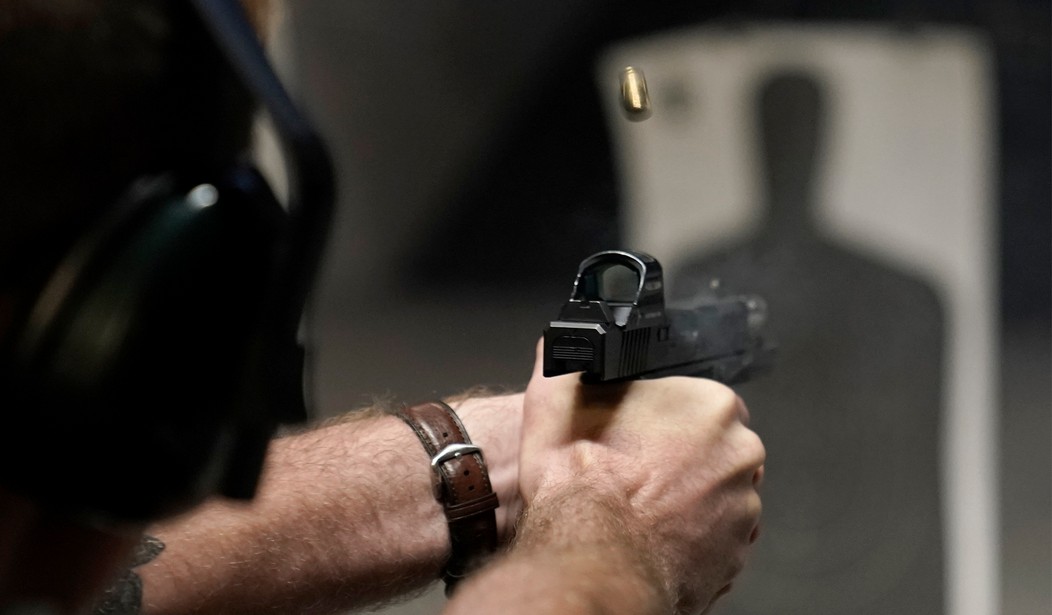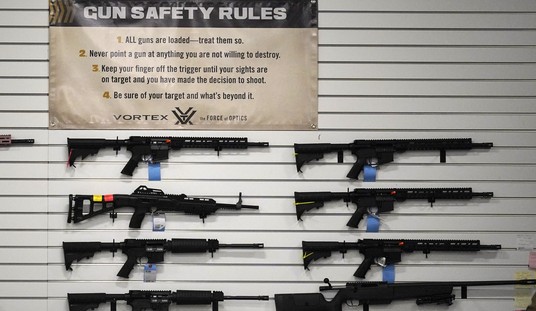If Justice Clarence Thomas firmly believed that the “text, history, and tradition” test for determining the constitutionality of gun control laws that he laid out in the Bruen decision was going to curb abuses by lower courts, I hope he and any other like-minded members of the Supreme Court have now disabused themselves of that notion. Since the Bruen opinion was released there have been no shortage of federal judges who’ve continued to give undue deference to the anti-gun machinations of politicians, and the latest example could have far-reaching consequences in the state of Rhode Island.
Earlier this year the Democratic-dominated legislature imposed a ban on “large capacity” magazines in the state; giving gun owners 180 days from the time the bill was signed to either permanently modify their ammunition magazines to accept no more than ten rounds, hand them over to the state police, destroy them, or remove them from the state entirely. The 180 days are up starting this Sunday, and a group of gun owners and gun store owners in the state had filed a lawsuit that not only challenges the legality of the magazine ban, but sought to halt enforcement of the measure while the case is being litigated.
The case was assigned to U.S. District Judge John J. McConnell, Jr.; an Obama appointee who’d previously served as treasurer of the Rhode Island Democratic Party and was heavily involved in Democratic politics in the state before he was elevated to the bench in 2011. That doesn’t mean that McConnell isn’t capable of ruling in an even-handed and non-partisan fashion, but it’s hard to apply either of those terms to the decision he released on Wednesday denying a request for a preliminary injunction. In his order McConnell declared that ammunition magazines aren’t protected by the Second Amendment in the first place, but even if they were the state’s ban probably doesn’t violate the right to keep and bear arms anyway.
In court filings, lawyers for the plaintiffs contended high-capacity magazines are considered an integral part of a firearm that is protected under the U.S. Constitution, and the core right to self-defense.
But McConnell disagreed, citing a doctrine that exempts property owners from compensation for “police actions” and policies deemed to be in the public’s interest.
The judge said he relied on data provided by medical experts that showed a connection between the use of large capacity magazines, and increased injuries resulting from mass shootings. He sided with the state’s legal team arguments that the ban is meant to improve public safety.
“It is perhaps inevitable that Rhode Island will one day be the scene of a mass shooting,” McConnnell wrote. “The LCM (large capacity magazine) ban is a small but measured attempt to mitigate the potential loss of life by regulating an instrument associated with mass slaughter.”
In his decision, McConnell admits that he himself was “uninitiated” on what ammunition magazines are and how they function, but still declared that they fall outside of the Second Amendment’s protections because they are “accoutrements” or attachments to firearms and aren’t integral to a firearm’s operation; an absurd statement when applied to semi-automatic handguns, which are arguably the most common type of firearm used for self-defense in the United States. Those guns would be single-shot firearms or paperweights if not for their ability to accept a detachable magazine, but according to McConnell they’re largely irrelevant to a semi-automatic firearm’s ability to function as its owner (and designer) intended.
Because McConnell decided that ammunition magazines aren’t protected by the Constitution, he didn’t feel obliged to follow the Supreme Court’s directive in determining whether or not Rhode Island’s ban violates the rights of residents. Instead, McConnell proceeded to engage in precisely the kind of interest-balancing test that the Court rejected in Bruen, laying out a list of mass shootings (including some in which “large capacity” magazines were not used) to declare that Rhode Island’s ban is a “reasonable response to the public interest of the state”; language that sounds an awful lot like the kind of circular reasoning appellate courts used and abused after SCOTUS struck down Washington, D.C.’s ban on handguns and storage requirements in the Heller decision back in 2008.
It’s also the second time in recent weeks that a federal judge has decided that a ban on “large capacity” magazines is perfectly allowable under the Second Amendment. U.S. District Judge Karen Immergut issued a ruling on Oregon’s Measure 114 that recognized magazines may have some protection from the text, history, and tradition of the Second Amendment, but that Measure 114’s ban on “large capacity” magazines was okay because “the right is limited to magazines that are necessary to render firearms operable for self-defense and other lawful purposes” and ignoring the lack of historical analogues that could back up her assertions.
In the case of Measure 114, a county judge who was hearing a challenge based on an alleged violation of the Oregon state Constitution disagreed with Immergut and granted a temporary restraining order blocking the magazine ban from being enforced. That isn’t an option when it comes to Rhode Island’s ban, or at least there’s no current challenge to the ban in state court that I’m aware of. As such, it looks like commonly-owned magazines that can hold more than ten rounds of ammunition will be forbidden in the state starting on Sunday, though I’ll venture a guess that the number of magazines turned over to state or local police is “zero”. And despite McConnell’s ruling, the legal challenge to Rhode Island’s latest infringement is still very much in the early stages, so Rhode Island gun owners should not lose hope that justice will be done here… even if it’s not going to come swiftly enough to prevent damage to their individual rights in the meantime.









